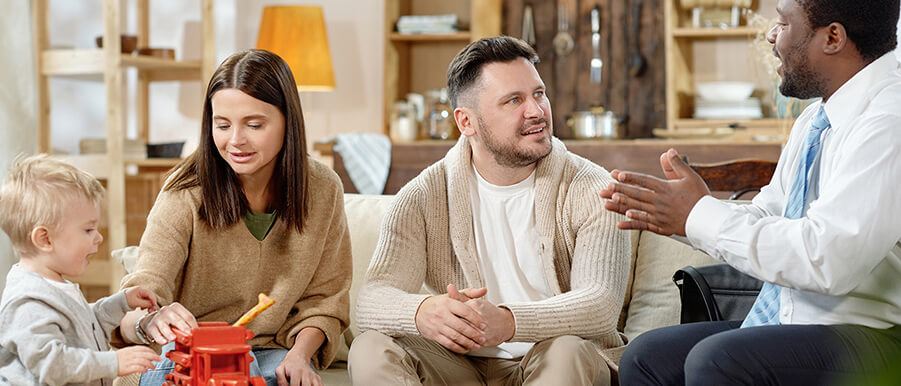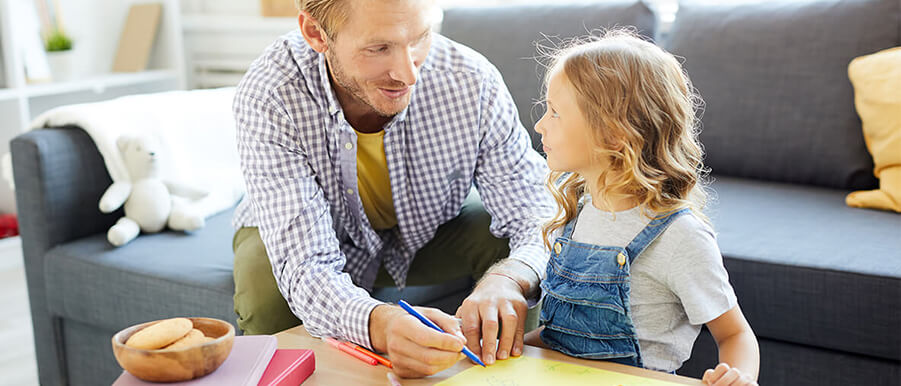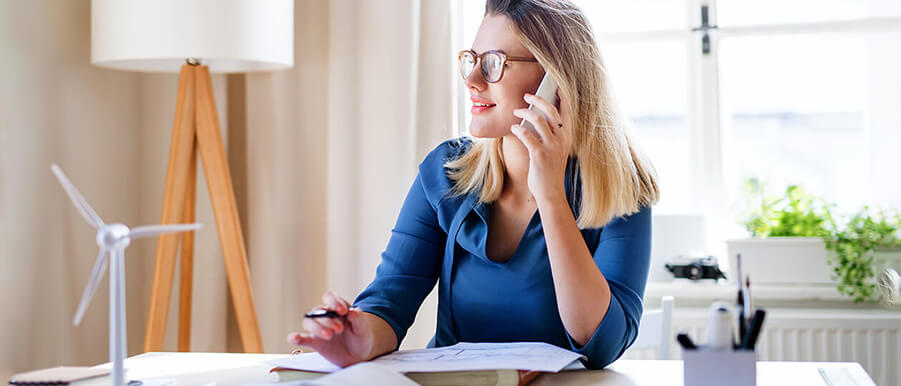 17 Aug 2020
17 Aug 2020
BY: admin
Relationships
Sending Your Kid to College During COVID-19
Sending your kid to college during COVID-19
As parents, it’s natural to worry about your college student when they leave home, especially if this is the first time they’ve ever been on their own. The coronavirus has made it even harder for parents to send their children off to college, and the anxiety can cast a black cloud over what should be a wonderful milestone.
Many colleges have delayed re-openings or have put safety measures in place to reduce the risk of the virus spreading. It would be more concerning as a parent if you weren’t worried about sending your kid to college during COVID. Learning how to manage this anxiety, however, is important to help you be as fully present and supportive as you want to be for your student.
Coping With Coronavirus Anxiety
COVID-19 makes most people nervous, but for many, it has caused paralyzing anxiety. For those with pre-existing conditions, a world with COVID-19 feels like a prison. Your house becomes your only safe space, but it can still be riddled with stress as your loved ones go out and potentially bring the virus back inside.
If everyone practices social distancing, good hygiene and wears a mask, the risk of infection is still extremely low. Your anxiety is normal, but if it’s making it difficult or impossible for you to adjust to the new way of living, professional counseling could help.
Our virtual services range from in-depth psychotherapy to personal counseling. We seek to not only address your concerns but validate them; we accept who you are and what you feel right now, and we want to pass that along to you, so you can begin finding strength in your ability to overcome this difficult time.
College Safety and COVID
Talking to your child about proper safety and prevention can also help dispel some of your own worries. Knowing they are fully aware of the risk and how to protect themselves can give you a small peace of mind.
Discuss the importance of social distancing, always wearing a mask and carrying hand sanitizer at all times. You can also offer them some more practical tips they may not have considered, such as:
- Wearing glasses to avoid eye contamination. Even non-prescription ones can provide a protective barrier.
- Avoiding public bathrooms.
- Reducing possible COVID complications by not smoking, exercising regularly and sleeping well.
- Boosting their immune system with a healthy diet. Smoothies are easy to make and are great alternatives for those who don’t like to eat raw vegetables or fruit.
- Saying no to crowds and get-togethers, especially with people they don’t know.
- Sterilizing phones, light switches, doorknobs and faucets daily.
Counseling to Treat College and COVID Anxiety
We are living through a historical, extremely stressful point in history. You deserve to feel like you have the skills you need to cope with your emotions, whatever they may be. Sending your child to college is emotional enough; you don’t need to struggle through fear and panic alone, too.
Reach out to us today to learn more about our counseling services. We offer flexible, virtual services designed to make professional help as accessible and comfortable as possible.
 05 Jun 2020
05 Jun 2020
BY: admin
Virtual Counseling
Divorce Counseling During COVID 19
Divorce Counseling During COVID 19
Divorce is often one of the most emotionally challenging experiences in a person’s life; coupled with the stress of Divorce is often one of the most emotionally challenging experiences in a person’s life; coupled with the stress of the coronavirus, coping with separation and the end of a marriage can be even more difficult. To end your relationship as peacefully as possible and gain the closure you need to move forward, you may consider online divorce counseling.
Why You Need Divorce Counseling
Whether your decision to separate was mutual or one-sided, the purpose of divorce counseling is to arrive at a place of mutual respect and understanding. Both partners in the relationship deserve a chance to share their experiences and leave their marriage with a sense of closure.
You can also choose to seek divorce counseling alone. While it can be helpful to have both spouses present, your decision to seek therapy is personal and can still be meaningful by yourself.
Divorce counseling can also help you honor your marriage and the love you once shared. You will be able to work through the loss, voice unspoken pain wounds and begin to heal. It is a place to cultivate acceptance and ultimately, peace.
Handling Emotions During COVID-19
Divorce during the coronavirus can also be accompanied by feelings of guilt; compared to those who are ill or grieving the loss of a loved one, you may feel like you are selfish for being so upset by your marriage ending. Divorce is hard, and the current pandemic doesn’t make it any less real or painful. In fact, it could make it even more difficult to cope with.
The time spent alone in quarantine can also increase feelings of loneliness and isolation; you may find yourself looking up your ex on social media, wanting to reach out to them or even attempting to rekindle the relationship despite your decision to separate. When you share friends and loved ones, it can be especially difficult to find the type of support you need.
Although the coronavirus has put many things into perspective, it does not mean we have to completely ignore our problems and repress our feelings. Right now, you hurt, and that is okay. Online counseling is one way you can reach out and find the connection and support you need to cope with this experience. Therapy can help you establish a new routine, close old chapters and start planning for the next stage of your life.
Please click here to learn more about our virtual counseling services. You can request an appointment with one of our therapists on this page.
 26 May 2020
26 May 2020
BY: admin
Virtual Counseling
Family Counseling During COVID-19
Family Counseling During COVID-19
The coronavirus presents challenges not only to your personal mental health but the entire family. You or a partner may have lost your job; the stress of parenting during a pandemic coupled with health anxiety and financial troubles can cause us to withdraw, become emotionally detached and even argue with our loved ones far more than usual.
Social distancing means neither children nor parents have the opportunity to spend time with their friends. Without an outside support system, life can feel intensely confining. Everyone needs a healthy dose of personal space and independence, even children. Striking this balance amid stay-at-home orders may seem impossible, but with the right help, it can be done.
Whatever troubles you may face, our online family counseling services can help you resolve problems peacefully. We help the entire family learn how to communicate better, support one another and fulfill their unique role in the household.
Parenting During the Coronavirus
Most parents are accustomed to having their children in school during the day while they work. Now, you find yourself responsible for not only your child’s well-being but also their education. Although many schools provide daily virtual instruction, it can be difficult to establish reasonable boundaries and appropriate discipline.
Therapy can help parents learn how to address troublesome behaviors without losing their temper or damaging their relationships with their children; family counseling also provides children with an opportunity to share their thoughts and express feelings they may struggle to communicate on their own. This fosters a deeper sense of trust and understanding throughout the family.
Self-Care and Relationships
For couples who are quarantined together, finding time to care for themselves and nourish their relationship can be extremely challenging. On top of work, parenting and stress, quality time as partners may fall to the backburner. However, it is important to learn how to work together so challenges bring you closer together, not further apart.
Counseling offers a space to release feelings you have been holding onto without escalating into an argument. Therapists help couples learn how to focus on solutions, not problems. By sharing responsibilities, respecting each other’s need for self-care and scheduling time to be together, you can restore balance to your family and relationship.
Transition Anxiety
Children who struggle to transition from school to being at home constantly are likely to express their frustration or worry through misbehavior. Your once mild-mannered child could suddenly become argumentative and defiant; children with ADHD or autism spectrum disorder are particularly sensitive to change, so finding ways to help them adjust and regain a sense of balance is crucial.
Through online family therapy, one of our licensed counselors can help you begin to understand change and anxiety through your children’s eyes. They can also offer tips for your own mental health so you are able to be fully present and emotionally engaged through the uncertainty of COVID-19.
Distance Learning Support
Virtual family counseling addresses everything from major changes to the family unit to everyday struggles. As parents and children face what is likely to be a prolonged period of distance education, it is important to make virtual schooling easy and fun.
Children who are resistant to learning on a computer may be more responsive to different approaches. Tailoring education to their unique learning style can reduce defiant behaviors, improve attitudes and even foster excitement toward learning new things each day.
To learn more about our services or schedule an appointment, please contact us.
 27 Apr 2020
27 Apr 2020
BY: admin
Relationships / Virtual Counseling
Relationship Counseling During COVID-19
Relationship Counseling During COVID-19
Quarantine and COVID-19 pose unique challenges to couples; some may be finding it difficult to maintain personal boundaries and healthy communication as they quarantine together while others are feeling detached and disconnected due to social isolation. Relationships are not exempt from the added stress of coping with the coronavirus, but partners do not have to simply hope for the best and ignore their problems.
Relationship counseling online can bridge the distance of social isolation and connect couples with licensed therapists who can help them work through any challenges they’re experiencing.
How Relationships Are Impacted by the Coronavirus
Dating requires consistency, communication and a healthy dose of independence on both sides. Couples currently find themselves either separated by mandatory shelter-in-place orders or confined together in their living quarters with limited outside social contacts.
For even the closest couples, quarantining together can be difficult. Constantly being around one another can lead to more arguing, and the flare-up of mental health symptoms many are experiencing may put further strain on a relationship.
Some partners may feel helpless as their significant other’s anxiety and/or depression symptoms worsen. Others might not be sure how to express their desire for personal space without being offensive. There may be limited opportunity to separate and cool off before resolving arguments. Others may feel like their relationship is stagnating without the ability to go out and do things together.
On the other end of the spectrum, COVID-19 has led to social isolation that has many couples separated. Those in long-distance relationships may feel especially distraught as they have no definitive date when they can see one another again.
The stress of managing a relationship and life during the coronavirus makes online counseling and relationship therapy a beneficial tool to anyone who finds themselves struggling during this time.
What Relationship Counseling Can Do Today
No therapist has all the answers, and couples might even feel like they’re at a loss for help with physical offices closed. But online counseling for couples can be just as effective as in-person sessions. Couples can speak together or individually to a counselor about what they’re going through and work on developing solutions.
Online counseling provides the opportunity for couples to express thoughts and feelings they may not be able to articulate with their partner during regular conversation. A counselor knows how to ask questions that facilitate constructive dialogue and foster understanding.
Together, couples and individual partners can work with a counselor to learn how to support each other through COVID-19 and protect their relationship. To speak with a therapist or request an appointment, click here.
 09 Apr 2020
09 Apr 2020
BY: admin
Counseling
How to Talk to Your Children About the Coronavirus
How to Talk to Your Children About the Coronavirus
Talking to children about certain subjects is always a challenge, but for most cases, we have time to plan and prepare. The new coronavirus has thrown everything for a loop, and many parents are left grappling with all the sudden changes. During this hectic and uncertain period, it can be easy to get so caught up in our own anxieties that we forget to include our children.
Talking to your children about the coronavirus can help ease their anxiety, reduce stress and learn how to protect their own health. We’ve put together a few suggestions on how you can teach your children about COVID-19.
Don’t Hide Reality
Although you should disclose details that are appropriate for your child’s age level, even toddlers can understand there has been a disruption to the norm, and it’s not wrong to talk to them about it. In fact, introducing children to the topic early can help them start to build resilience. This is an opportunity for your child to understand there are things in life beyond their control, but they can adapt with support rather than cope with anxiety.
Avoiding a scary subject like the virus can actually heighten children’s concerns. After all, if their parents aren’t talking about it, it must be really bad, right? They are bound to see headlines on the TV or phone, overhear adults talking about COVID-19 and draw their own conclusions.
Help dispel worry by talking openly about the virus. You can find the best information on the Centers for Disease Control and Prevention website. There is also a free video by education site BrainPop that you can watch together and discuss.
Stay on Their Level
Children should be spoken to in a manner that is easy for them to understand. Keeping language developmentally appropriate can help prevent misunderstandings and greater confusion. A small child between the ages of 2 and 4 will likely be fine with a straightforward, two-sentence explanation such as, “A lot of people outside are getting sick right now, so we’re going to stay inside to keep ourselves healthy while the doctors do their jobs.”
Older children will likely prompt for greater detail; those who use the internet have likely come across articles and done some of their own reading already. Answer their questions as they come, but keep a positive mindset. Focus more on what you and your family can do, like self-isolating and washing your hands regularly. Anxiety stems from uncertainty and feelings of powerlessness; shifting your child’s attention to their ability to protect themselves and others will help alleviate discomfort.
Reassure Repeatedly
Let your child know that the coronavirus seems to affect children in less severe ways, and that if they practice good hygiene, they will most likely not catch it. Remind children that they have the ability to protect themselves and their family; talk about the right way to wash your hands, which is 20 seconds. A helpful way to remember is to sing the “Happy Birthday” song while they lather with soap and water.
Stick to a Routine
It can be helpful for both you and your children to follow your usual schedule as closely as possible; it should be business as usual when it comes to waking up, bedtime and getting dressed. Maintaining this semblance of normalcy will bring comfort and security to children as they adapt to the many changes going on around them.
Enjoy Family Time
While sticking with a routine, let you kids know that this is also a great opportunity to have some extra family time and to do some things that you typically wouldn’t be of a mind to do or wouldn’t feel like you had the time for. Create an extra movie/pizza night, game night, book night, or outdoor games challenge. Do some Go Noodle dances together. Sing karaoke! Have a Dude Perfect shot or bottle-flipping challenge. One family we know of created a tik tok dance together. There are so many ways to take advantage of this time.
A good combination of all the above will make this an easier time for your children, you as parents, and for all of you as a family.
At Caring Heart Counseling, we want to be here for you and your family during this challenging time. We offer virtual counseling with our therapists that you can access right from the comfort of your own home. To learn more, contact us today.
 06 Apr 2020
06 Apr 2020
BY: admin
Counseling
10 Tips for Working from Home During COVID-19
10 Tips for Working from Home During COVID-19
Millions of Americans are working home to help curb the outbreak of the coronavirus, but remote work takes some getting used to. For many of us, work is strictly at an office, so the distinction between work and play was as simple as coming home. Now that you’ll be spending most of your time indoors, it’s important to set yourself up for productivity to avoid burnout, overworking or too much procrastinating.
These 10 tips will help you adjust to working from home during COVID-19.
Get Dressed Everyday
Although it’s tempting to just wear your pajamas all day, getting dressed is one of the easiest ways to get yourself into “work mode.” The act of dressing yourself for work can help create a psychological division between relaxation and productivity.
Have Routine Breaks
It can be easy to slip into work at your desk or dining room table and completely lose track of time. Avoid this by taking your lunch break at the same time you normally do and getting up for at least 10 minutes every hour to stretch your legs.
Talk to Your Coworkers as Usual
You’ll need to communicate with your colleagues even more now that you aren’t physically able to check in with one another. Use Zoom, Slack and any other programs your company prefers as often as possible.
Turn Your Phone on Silent
Unless you need it on for work, ditch your cell phone during work hours. If you keep it by your desk, you’ll likely find yourself picking it up to scroll through Instagram or respond to text messages more often than you could at the office.
Avoid Social Media Rabbit Holes
Although it might be tempting to indulge what’s typically off-limits during the workday, social media can become a major distraction that ultimately lowers your work performance, which will increase stress.
Use Music to Limit Outside Distractions
Put in your headphones and turn on Spotify to drown out neighborhood noises and other distractions. Whatever you choose to listen to, make sure that it helps you focus and doesn’t unintentionally draw your mind away from the tasks at hand.
Set Boundaries Between Your Work and Home Life
It’s best to distance yourself from work and relaxation by avoiding any domestic tasks during the day. In other words, don’t stop working to do laundry, vacuum or wash the dishes. All of that can be taken care of after your shift is done for the day.
Get Plenty of Sun
Set up your workspace near a window, or take a walk outside if you can. Sunlight is a natural mood-booster, and staying close to nature will help you avoid cabin fever. If you do go out for a walk, remember to practice social distancing by staying at least 6 feet apart from others.
Set Small Goals
Some people may feel overwhelmed without the structure of their office and the presence of their coworkers to guide them. It’s okay if your workflow is thrown off, but you can make it through one day at a time by narrowing your responsibilities down to the most essential tasks.
Have an End-of-Work Ritual
When the workday is done, make sure you help “switch off” your brain by closing your laptop, changing into something more comfortable and doing something relaxing. Close your laptop, set your status as “away” in chats and avoid answering emails or doing anything off the clock.
Adjusting to working at home is a challenge, and you may find yourself more stressed, anxious or even depressed now that you aren’t able to go out every day. If that’s the case, we can help. Contact us today to learn more about our virtual therapy services during the coronavirus.

